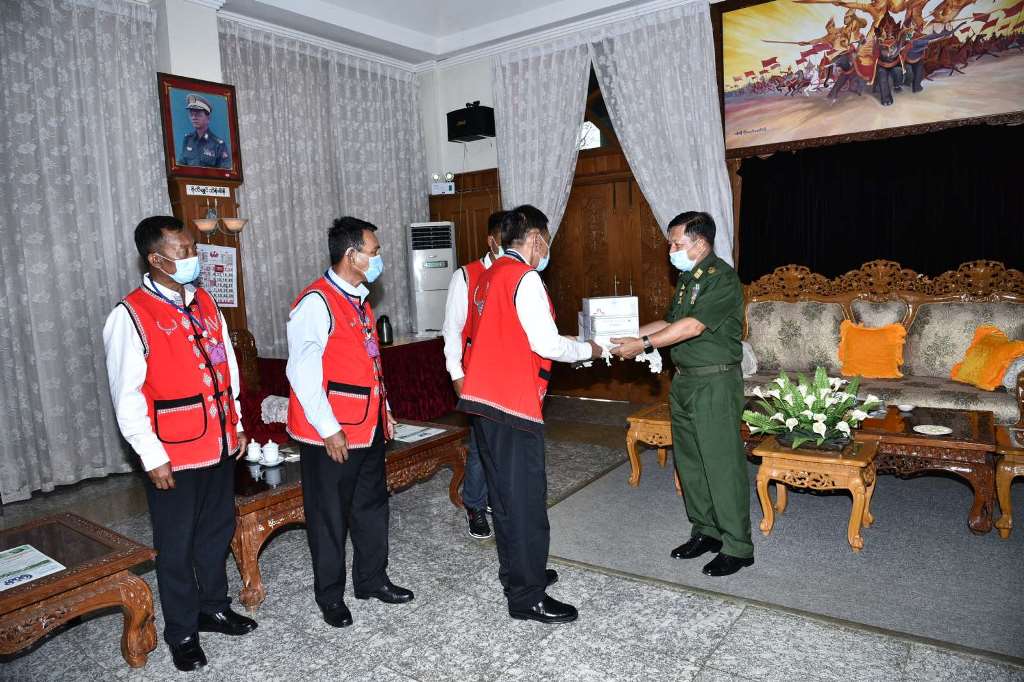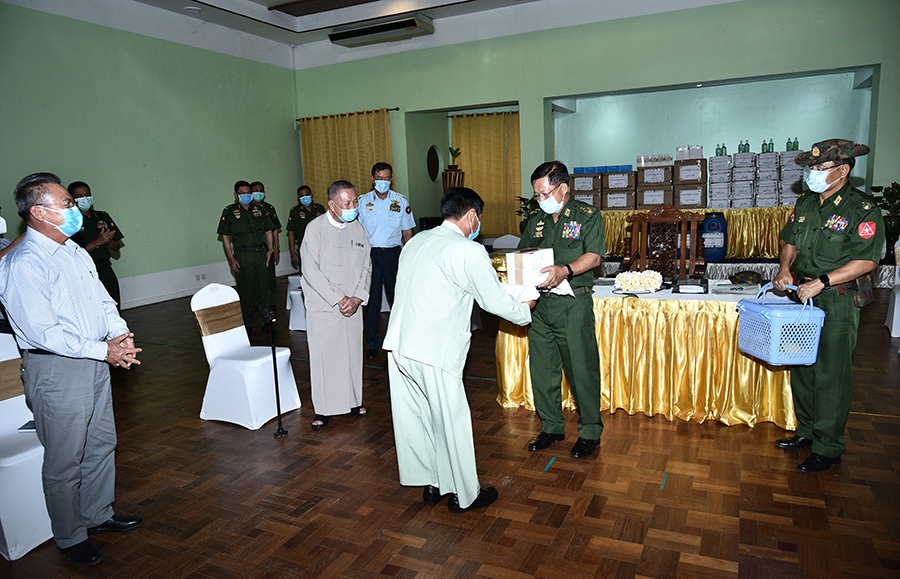Far from being contained, the violence in northern Rakhine State continues to spread. With the Arakan Army (AA) having established a foothold in the area, the fighting in Rakhine is escalating and many fear it will only intensify.
To those field commanders who were hoping for a break from the daily fighting, all of the recent news has been bad.
On Sunday, the military (or Tatmadaw) announced a ceasefire in parts of the country effective until Aug. 31, but the measure does not cover Rakhine State. The military’s designation of the AA as terrorist group in March seems certain to lock the two sides into a bitter war. The thinking at the high command in Naypyitaw is that the military needs to be able to concentrate its fighting forces in northern Rakhine, as the conflicts with other ethnic armed groups are deemed less serious, and there has been no fighting at all in some areas, particularly those controlled by the Kachin Independence Army and the Kokang rebel group, the Myanmar National Democratic Alliance Army.
Officially, the military says the objective of the ceasefire is to allow it to focus on the fight against the COVID-19 epidemic. Since last month, the military has been conducting lab tests for COVID-19 using a machine with capacity to process 200 samples per day at a 300-bed military hospital in eastern Shan State’s Kengtung, under the Triangle Command.
Coinciding with the announcement of the ceasefire, Myanmar military chief Senior General Min Aung Hlaing traveled to the Tatmadaw’s Triangle Command, where he met leaders from the United Wa State Army (UWSA) and National Democratic Alliance Army (NDAA, also known as the Mong La group).
In separate meetings with leaders of the groups, Snr-Gen Min Aung Hlaing offered to provide assistance to combat the COVID-19 outbreak. However, observers noted that the commander-in-chief also raised the issue of the AA with leaders of the powerful UWSA.

The Wa recently purchased civilian helicopters and now control a sizable army of over 30,000 troops equipped with missiles, drones and several other types of sophisticated weaponry. The Wa also allegedly sell weapons and ammunition to smaller ethnic forces in Myanmar on credit, and the AA is thought to be among their clients.
Snr-Gen Min Aung Hlaing’s meeting with leaders of the NDAA went smoothly and they acknowledged the stability of the relationship between the two sides. Concerns were raised recently, however, when more than 200 Rakhine men returned from China into NDAA territory, where they went quarantine. The NDAA leaders have promised to find jobs for them.
Many ethnic Rakhine who travel to the Chinese border to find work end up joining the AA. The military wants to ensure it can coordinate with NDAA leaders on quarantine procedures for Rakhine men while gathering information on the individuals involved.
Military reshuffle
The senior general’s visit to the Golden Triangle followed a reshuffle of the armed forces’ top brass that saw several younger-generation officers promoted to inject new blood into senior command positions.
Among those promoted was Major General Kyaw Swar Lin, who previously served as head of the Tatmadaw’s Central Command. He has been promoted to lieutenant general and appointed quartermaster general, replacing Lieutenant General Nyo Saw, who is retiring but will remain head of the military-owned Myanmar Economic Cooperation.
Kyaw Swar Lin, 49, becomes the youngest lieutenant general ever to serve in the Myanmar military.
More importantly, Colonel Wai Lin, who previously served in the Coastal Region Command, has been appointed a General Staff officer at the military headquarters in Naypyitaw. He replaces Brigadier General Ko Ko Oo, who is known as a moderate among mid-ranking officers and has been promoted to head the Central Command. In the past, Ko Ko Oo served as the personal security officer for General Maung Aye when the latter was deputy chairman of the formerly ruling State Peace and Development Council (SPDC) and No. 2 in the armed forces.
In his new position, Wai Lin will hold the rank of brigadier general and will coordinate between commander-in-chief Snr-Gen Min Aung Hlaing and his deputy, Vice Senior General Soe Win. He will shuttle between the two offices. Military observers say his position is crucial to the Rakhine conflict, as he will work directly with field commanders.
In his previous position, then Col. Wai Lin was known for his tough stance toward illegal fishing trawlers, smugglers, pirates and fishing boats entering Myanmar waters illegally. It is not known whether Wai Lin was previously based in Rakhine State. Army officers who have served in Rakhine during the armed conflict there over the past eight years are generally looked on favorably within the army and have a high degree of credibility. In the 1990s and early 2000s, Rakhine was relatively peaceful except for occasional military operations to drive out illegal immigrants from Bangladesh and periodic crackdowns on pockets of Muslim insurgents there.

In any case, Wai Lin was one of a group of colonels from the frontline area shortlisted to deal with the unfolding situation in Rakhine. Some insiders believe Ko Ko Oo is competent but not tough enough for the task. To be fair, military officers who know him add that he has done his best to coordinate with field commanders in Rakhine.
Col. Wai Lin will have to work with both Snr-Gen Min Aung Hlaing and Vice Snr-Gen Soe Win, but it is likely he will spend more time with the latter, who is now focused on the Rakhine conflict, and on persuading the government and State Counselor Daw Aung San Suu Kyi to take a tougher stance on the AA. It is no secret that Vice Snr-Gen Soe Win has better chemistry with the State Counselor than Snr-Gen Min Aung Hlaing does.
When news of the ceasefire was announced this weekend, field commanders who were hoping that it would also cover Rakhine State saw their hopes dashed. However, it seems Vice Snr-Gen Soe Win, who previously served in Rakhine, Chin and Kachin states, does not intend to give his commanders any rest from the fighting. It can only mean that more bloodshed and an expansion of the conflict lie ahead.
You may also like these stories:
Younger Myanmar Military Officers Promoted to Key Roles in Reshuffle
Myanmar Military Re-Arrests Rakhine Civilians After Court Release
Building New IDP Camps Requires Security Considerations: Rakhine State Govt

















